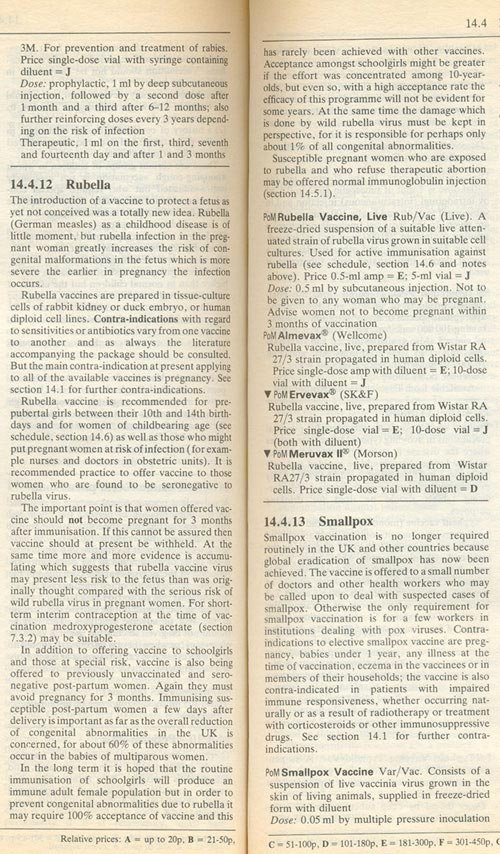Vaccines.Me
Posted by vaccinesme on Monday, February, 02 2009 and filed under Articles
Key topics: Rubella • Pregnancy
In the section on rubella in the 1986 version of the British National Formulary we read that the wild virus rubella is "of little moment" (i.e. not significant) and that the earlier in the pregnancy the exposure to rubella, the greater the risk of congenital defects in the fetus.
Some Quotes From the Section on rubella
The important point is that women offered the vaccine should not become pregnant for 3 months after immunization. If this cannot be assured then vaccine should at present be withheld.
Becoming pregnant after the vaccine can lead to the very thing it is supposed to prevent, i.e. congenital deformities in the fetus.
And also:
...but in order to prevent congenital abnormalities due to rubella it may require 100% acceptance of vaccine and this has rarely been achieved with other vaccines.
That is to prevent congenital deformities, a 100% uptake of the vaccine has to be ensured. And that is next to impossible to achieve in any nation.
And also:
At the same time the damage which is done by wild rubella virus must be kept in perspective, for it is responsible for perhaps only 1% of all congenital abnormalities.
This is the most important quote (and you won't see it in later editions of the Formulary). Of all congenital deformities that occur in a given year (which is a small percentage of the overall number of births in a population) - the wild rubella virus is responsible for "perhaps only 1%" of them.
If the aim of the rubella vaccine is to prevent congenital deformities in the fetus in a pregnant woman, then of what clinical benefit is it to vaccinate a child (girl or boy) at 12-15 months or 4 years of age?
Here is the full section:
